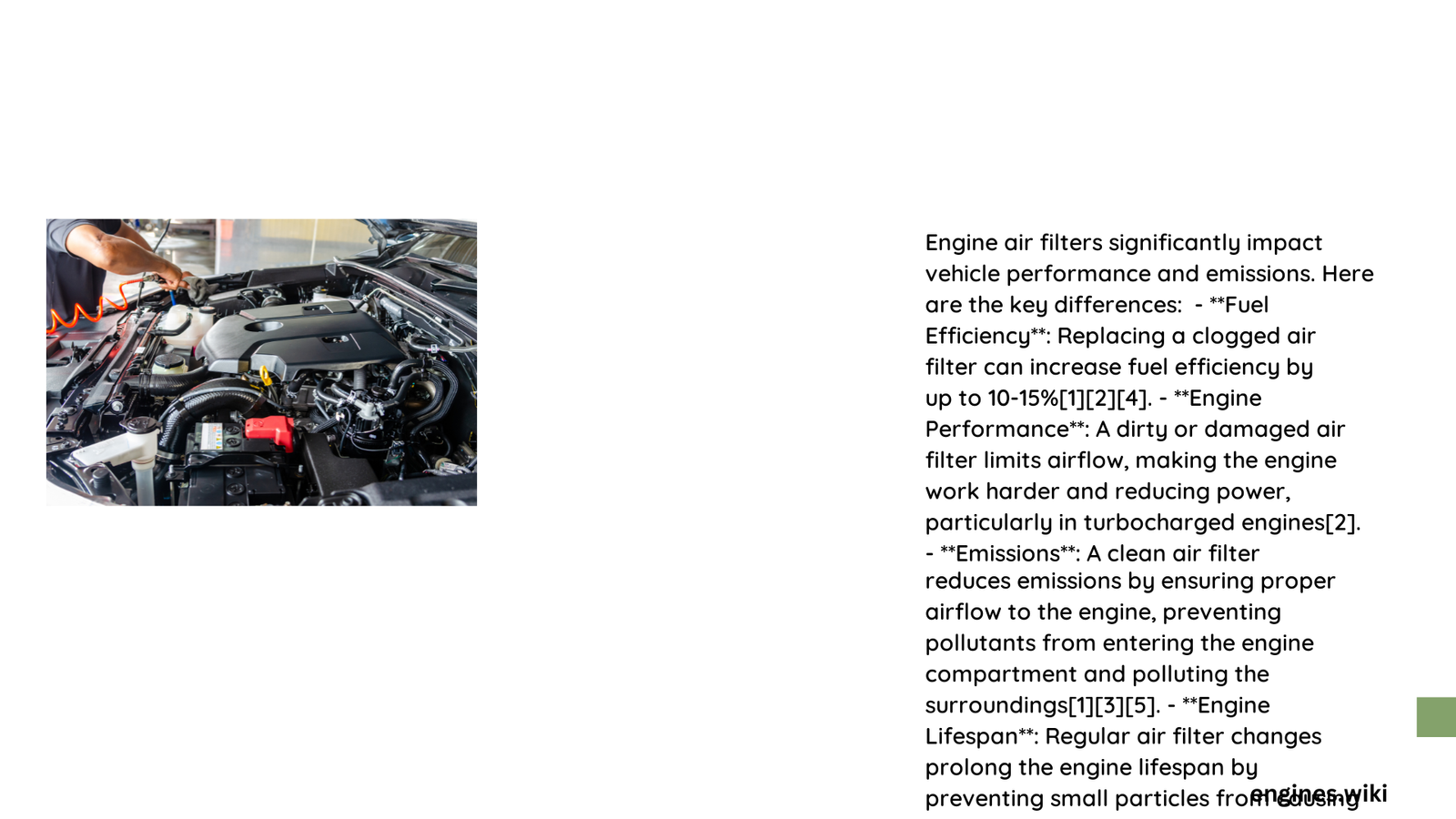Engine air filters are critical components that significantly influence vehicle performance, fuel efficiency, and overall engine health. A clean air filter ensures optimal airflow, prevents contaminants from entering the engine, and maintains the delicate balance of air and fuel mixture. Neglecting air filter maintenance can lead to reduced horsepower, increased fuel consumption, and potential long-term engine damage.
What Happens When Air Filters Get Dirty?
Air filters accumulate dust, debris, and particulate matter over time, which can dramatically impact engine performance. When these filters become clogged, they restrict airflow, forcing the engine to work harder and consume more fuel to maintain the same level of performance.
How Do Air Filters Affect Engine Performance?
Horsepower and Efficiency Metrics
- Performance Reduction: A dirty air filter can decrease engine power by up to 10%
- Fuel Consumption Increase: Potential 5% rise in specific fuel consumption
- Airflow Restriction: Can reduce engine’s filling degree by approximately 12%
| Filter Condition | Horsepower Impact | Fuel Efficiency | Recommended Action |
|---|---|---|---|
| Clean Filter | Maximum Performance | Optimal MPG | Regular Maintenance |
| Dirty Filter | 10% Power Reduction | Decreased Efficiency | Immediate Replacement |
What Types of Air Filters Exist?

Paper Filters
- Most common filter type
- Balanced filtration and airflow
- Affordable and effective for standard driving conditions
Foam Filters
- Excellent for dusty environments
- Higher particle protection
- Slightly more airflow restriction
Cotton Filters
- High-performance option
- Reusable and washable
- Superior airflow characteristics
How Often Should Air Filters Be Replaced?
Recommended replacement intervals:
– Standard driving conditions: Every 15,000-30,000 miles
– Dusty environments: Every 10,000-15,000 miles
– Performance vehicles: More frequent inspections recommended
What Are the Economic Implications?
Cost considerations for air filter maintenance:
1. Filter replacement cost: $10-$30
2. Potential fuel savings: Up to 5% improved fuel efficiency
3. Prevent expensive engine repairs
4. Extend overall engine lifespan
Practical Maintenance Tips
- Inspect air filter every oil change
- Use high-quality filters matching vehicle specifications
- Consider driving conditions when determining replacement frequency
- Look for signs of excessive dirt and debris accumulation
Technical Insights
Research indicates that air filter resistance directly correlates with:
– Reduced engine useful power
– Increased specific fuel consumption
– Potential changes in emission characteristics
Conclusion
Regular air filter maintenance is a cost-effective strategy for preserving engine performance, improving fuel efficiency, and preventing potential long-term mechanical issues.
